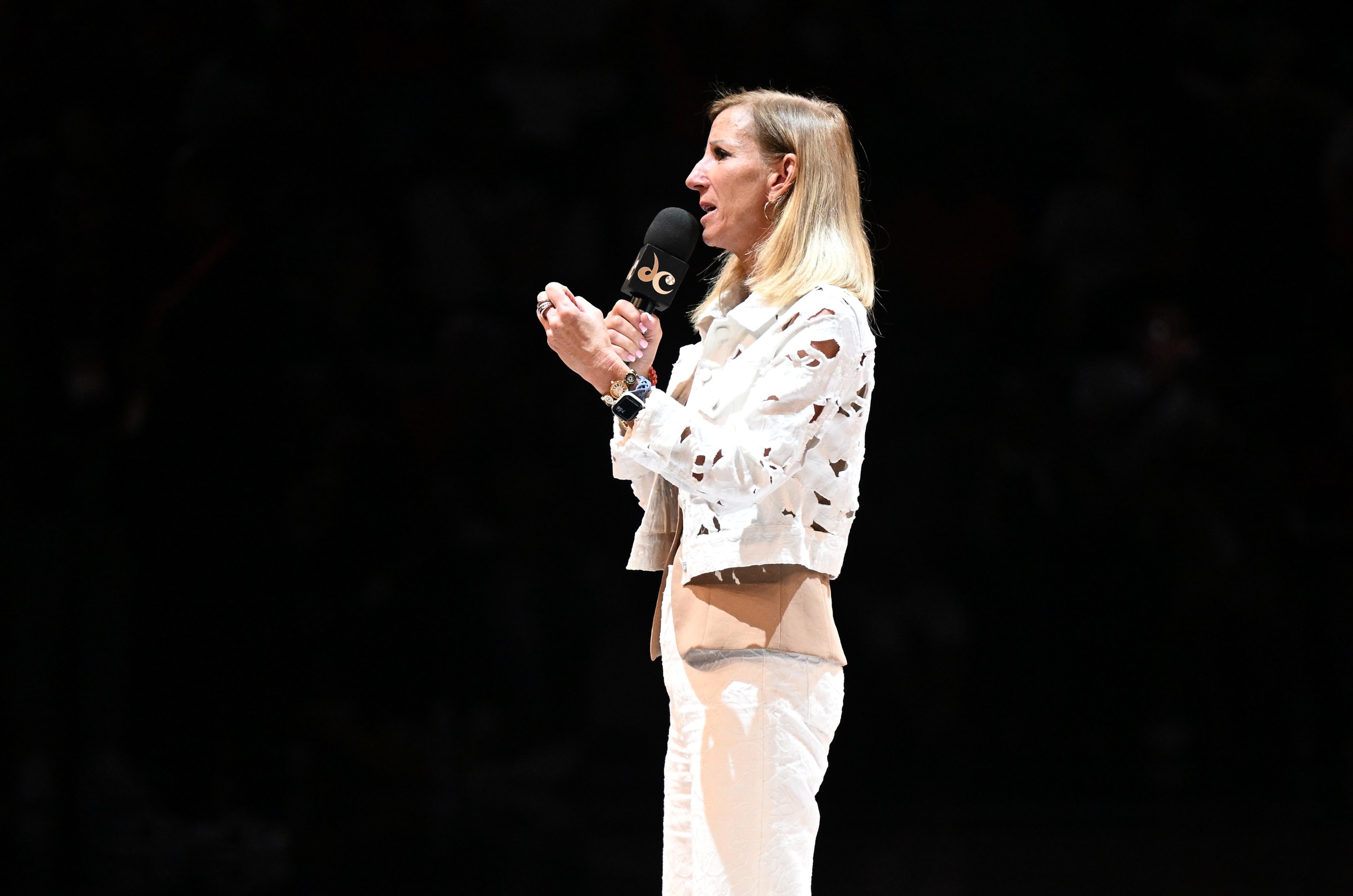The WNBA announced on Monday that it will expand to 18 teams by 2030, adding franchises in Cleveland, Detroit and Philadelphia. By the end of this transformative round of expansion, the league will have added six teams in six years. The Golden State Valkyries joined the WNBA as its 13th team this season; teams in Toronto and Portland will begin play next summer.
Before the 2024 draft, WNBA commissioner Cathy Engelbert said the league’s goal was to expand to 16 teams by 2028. Sports Business Journal’s Tom Friend reported this past February that Cleveland would be awarded the 16th team. But he also reported that the WNBA had reevaluated its initial 16-team target and was now eyeing 18. “How do you walk away from three quarters of a billion dollars?” a source told Friend. These three new teams all have NBA ownership groups, and each indeed reportedly paid an expansion fee of $250 million, a ginormous increase from the $50 million fee Valkyries owner Joe Lacob paid to join the WNBA in late 2023.
That the bids were led by NBA owners is another sign of the growing capital demands of WNBA ownership. Teams are under pressure to invest heavily in facilities and player amenities. Mohegan Sun, the first WNBA ownership group independent of the NBA, has begun to explore a sale of the Connecticut Sun, which they have owned for more than 20 years. Engelbert said at Monday's announcement press conference that NBA owners could commit to providing teams NBA-caliber arenas and facilities, but she also pointed out that neither Toronto’s WNBA team nor Portland’s will be owned by NBA owners. The Toronto Tempo are owned by Larry Tanenbaum, a minority owner of Raptors parent company Maple Leaf Sports & Entertainment, but he pursued the WNBA team independently, without MLSE backing. Portland’s bid was led by the Bhathal family, which owns the NWSL’s Portland Thorns and holds a minority stake in the Sacramento Kings.
For Cleveland and Detroit—joining the league in 2028 and 2029, respectively—this is sort of a return to the WNBA. The Cleveland Rockers were one of the WNBA’s original eight teams in 1997, but in 2003, the Cavs owners announced that they no longer wished to operate the team, citing lack of revenue. The Detroit Shock joined the WNBA in 1998 and won three WNBA championships in the 2000s, but were sold separately to a buyer from Tulsa shortly after the Shock and Pistons owner died in 2009. For Philadelphia, set to join the league in 2030, this is the city's first-ever professional basketball team.
Twenty years after that era of team contraction and relocation, a WNBA team is suddenly a hot commodity. The league reportedly considered bids from more than a dozen different markets, including Denver and Kansas City. Asked about the unsuccessful bids in Monday’s press conference, Engelbert specifically named Houston as a market “we have our eye on.”
New WNBA owners will share in the league’s dramatically growing revenue. The league’s new media rights deal, part of the larger NBA media rights agreement finalized last year, was valued at $2.2 billion over 11 years, or $200 million per year, more than four times as much as the current valuation. Moving from 12 to 18 teams in a fairly short period of time is sure to present some growing pains. There will need to be three expansion drafts in three years, and the level of play might briefly dip with 60 new roster spots.
But the expansion era is off to a smooth start so far. The surprisingly punchy Valkyries plays in what’s already among the loudest buildings in the league. Per Across the Timeline, a women’s basketball stats website that tracks attendance figures, the Valkyries lead the WNBA in average attendance and Sportico recently valued the franchise at $500 million. But enough about them—unnamed WNBA Detroit team in four.






